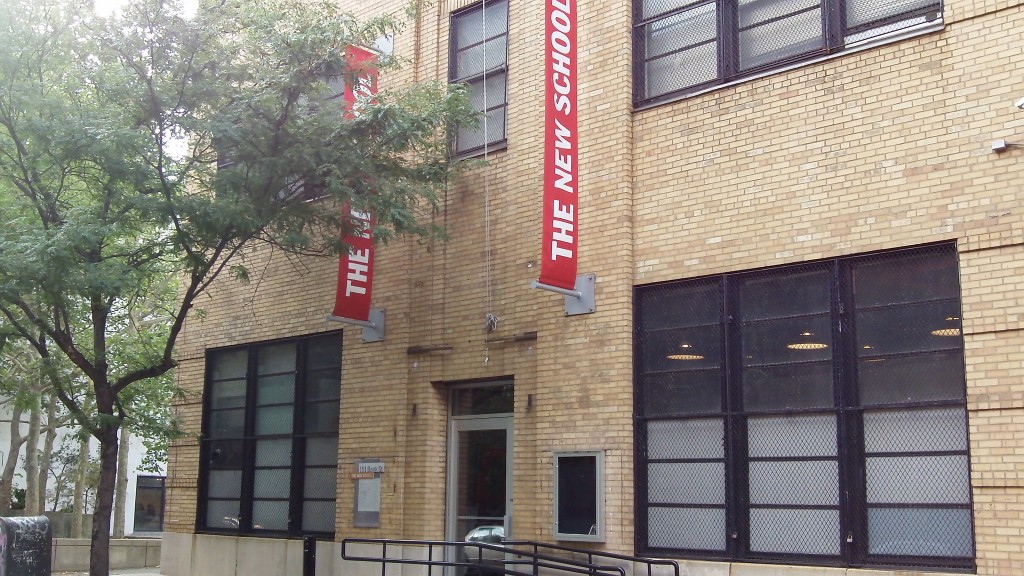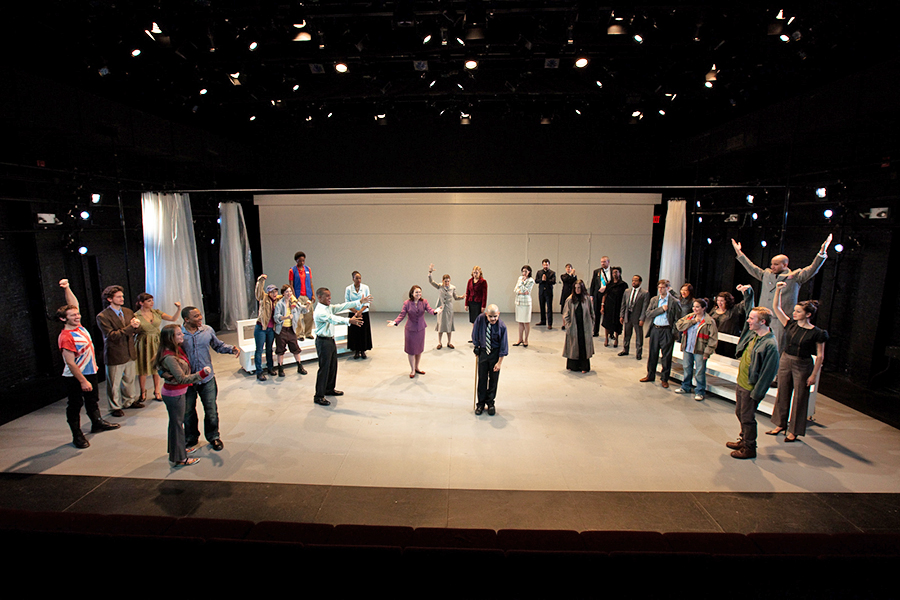The New School for Drama is the department of theater arts within the New York based New School University, and offers both a graduate and undergraduate programs appealing to a large array of students aspiring for a future career in the domain. Granted, none of them have huge history backing them, but the host of experienced personnel that this school has to offer makes up for the lack of tradition and rockets right into the top of acting schools.
The graduate program has been a part of the New School for Drama since 2005; those who attend it can have the chance of earning a Master of Fine Arts degree in either of play-writing, acting and directing. The undergraduate program is more recent; it’s only in its second year of functioning since its 2013 creation and follows combined courses for all of the above to give studies a broader perspective on the domain. It currently works as a four year program, at end of which those who graduate it will receive a Bachelor of Fine Arts degree in Dramatic Arts.

The Master’s Program
Now, even though the current actual Master’s Program was started in 2005, New School University had a graduate program in theater and acting since 1994 in collaboration with the famous Actors Studio organization, which held their Actors Studio Drama School program in collaboration with New School since 1994. However, in 2005 the contract between the organization and the university ran out and the Actors Studio chose not to renew it; moving instead to fellow NYC-based Pace University.
But the New School board back then chose to continue the drama program on its own; so the next two generations of students had actually signed up for the Actors Studio Drama School and ended up getting a degree from the New School for Drama. Multiple Tony Award-nominated actor/director Robert LuPone was chosen as the graduate’s program first director.
That’s not to say that the current iteration of three-year program lacks established names. On the contrary, the program includes acclaimed actors/playwrights directors such as Ron Leibman, Michael Weller or Christopher Shinn. The New School for Drama also follows an artist in residence program who is currently hosting double Academy Award nominee Mark Ruffalo, of Foxcatcher, The Kids are All Right and Avengers fame. Past residencies include Academy Award winning screenwriter John Patrick Shanley (Moonlight) and actor John Turturro (Transformers, Collateral Damage, The Big Lebowski).
The Undergraduate Program
As we already said, the undergraduate program is The New School for Drama’s latest venture. The first classes were held in August 2013 and the current generation, comprising of fifty students following acting, play-writing and directing courses concomitantly, will graduate in 2017, representing the first to get their Bachelor’s Degree from the acting school.
The faculty boasts a variety of well-trained and experienced teachers and instructors, of which most also work in the graduate program. The undergraduate program’s director is Carrie Neal, and teaching board include the likes of Jennifer McCabe (Foundations in Acting), Jane Ann Crum (Global Theater History) or Jean Taylor (Aesthetic Inquiry).

Concerning the curriculum itself, it has a diverse multidisciplinary scope that aims to teach students all the basics about the functioning of a studio, so that they may be prepared for whatever specialization they choose. Acting, directing, creative technologies, aesthetic inquiry and directing are combined into a project-focused programs, at the end of which the most vital lesson learned amounts to the collaboration between these different branches – critical for the success of any theatrical or cinematic piece.
As the program advances, the students shift step-by-step from the broader perspective to a much more focused approach, later years involving them deciding which aspects they want to concentrate upon for the future. This is a very balanced approach between the necessity of the general image which all undergraduates must comprehend and the need of starting a slight shift into the future Master’s direction.
The training is top-notch and fully professional in this regard; later electives include theater, research methods studios, production or reflective learning. The ideal of The New School for Drama is to properly establish the link between the theoretical and the practical aspects. This also means adapting studies for the different type of performances and schools worldwide; students are guided towards becoming familiar with different types of playwrights, performers or directors from many different artistic styles throughout the world.
Also, those following the bachelor’s program at The New School for Drama and want a dual degree just for safety can also choose one of the minor ones from sister New School college Parsons and Eugene Lang. They can also attend certain classes there and obtain certain certificates which they might find useful in other areas.
There are a number of key aspects to the New School undergraduate program: first, one of the main goals is that of having students veer less from accepted theory and into the playground of critical thinking, which in turn will stimulate innovation in the long term. This is critical for a healthy personal development and for developing one’s identity in the industry – and not just resorting towards being a copycat of successful examples.
Here’s a list of the courses which are offered in this program:
Creativity and Courage – despite the informal name, this one is crucial towards having students working in a culture of critical analysis and unlimited creative freedom. Proper assessment of risk can be the hallmark of an innovative career, while lack of it can end one before properly even starting.
Communication – if creativity and courage rely on the individual, expression and maintaining a healthy relation between different specialists involved in the making of a play/movie/commercial is a key aspect; communication is highly underrated in this regard, and actors/directors/screenwriters who fail to properly communicate with the rest of the set can see themselves shunned despite any creative talent they possess.
Critical Thinking and Reflection – this is self-explanatory to say the least. They are the basis of a successful creative process and of gaining experience from wherever is possible.